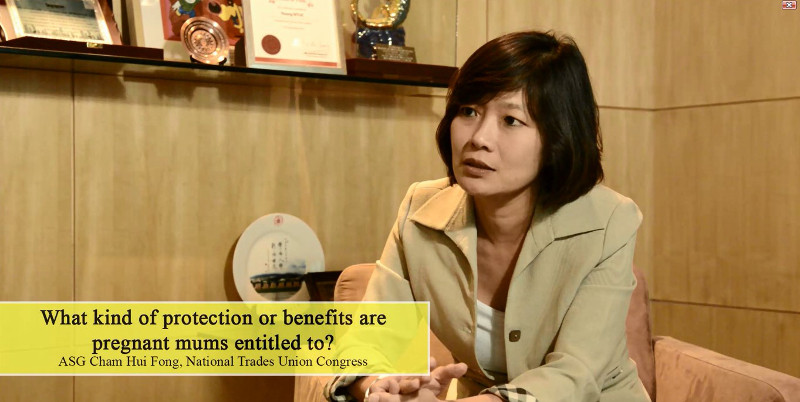Divorce can be messy especially when it ensues in a court battle, but this does not always have to be the case.
The Singapore law provides for alternative routes through Divorce Mediation or Family Mediation to resolve disputes arising from a divorce.
This means couples can resolve their separation without having to go to contested hearings in court.

The Straits Times reported that “Almost seven out of 10 divorce cases that went to mediation were resolved through the process last year.” (The Straits Times, 28 Feb 2018)
Is it really possible to part amicably when a marriage fails?
To share more about Divorce Mediation in Singapore, we speak to a Divorce Lawyer from GJC Law.
What is Divorce Mediation?
Divorce mediation is a platform where parties in a contested divorce, can with the assistance of a mediator/co-mediators, try to reach an amicable resolution to all issues (divorce and ancillary matters).
This will allow parties to achieve an outcome that all parties can accept, without expending as much time and legal costs as they would in litigation.
Read more: Family Law: Can my Divorce be settled out of court?
What Are The Stages Of Divorce Mediation?
Stage 1: Pre-Filing of Divorce
- Private mediation options
- To mediate to come to an agreement on all terms, even before divorce papers are filed in court.
- If parties can reach an agreement on all the issues, parties can then proceed with an uncontested simplified divorce
- An uncontested simplified divorce will be the quickest, most cost efficient avenue for parties to get a divorce.
Stage 2: Post filing of divorce
- At any point in the divorce, parties can still ask to go for court mediation or private mediation to resolve matters.
- The litigation process will then be put on hold pending the outcome of mediation.
What are the different kinds of Divorce Mediation in Singapore?
There are three kinds of Divorce Mediation.
1. Court Mediation at the Family Justice Courts
- Takes place in Court
- No court mediation fees payable
- Mediator is usually a family court judge with experience in these matters
- Where children are involved, the assistance of a court counsellor is also available
- As it is subject to the court’s available dates, process could take some time
2. Mediation at the Singapore Mediation Centre
- Takes place at Singapore Mediation Centre
- Fees payable
- One or two mediators appointed
- Flexibility of schedule
3. Private Mediation
- Takes place at an agreed venue
- Fees payable
- Usually one mediator with option for co-mediator
- Flexibility of schedule
The Mediation Process: A Step-By-Step Guide By Divorce Lawyers From GJC Law

a) Court Mediation at the Family Justice Courts
Sessions at the Child Focused Resolution Centre (CFRC) will have at least two sessions.
Step 1:
The first session is the Family Dispute Resolution (FDR) Conference.
This is attended by parties and their lawyers, if any, with a Judge-Mediator and a Family Counsellor.
The Judge-Mediator will identify the issues in the dispute and set out the agenda for mediation and counselling. The counselling session will follow directly after the FDR session and will be attended by parties only.
The family counsellor will gather information from the parties and deal with any immediate concerns. Subsequent counselling sessions may be arranged, if the counsellor deems it to be necessary.
Read more: Compulsory Councelling & Mediation—Child Focused Resolution Centre
Step 2:
The second CFRC session will be attended by parties and lawyers.
The Judge-Mediator will discuss the divorce and ancillary issues will be discussed. If the Judge-Mediator feels that there are complex legal and emotional issues involved, further CFRC sessions may be arranged to discuss the issues.
b) Mediation at the Singapore Mediation Centre
Step 1:
Parties have to submit a Request for Mediation to SMC and state the parties’ details and the nature of the dispute.
Step 2:
Payment for the deposit to SMC and execution of a Mediation Participation Agreement relating to the conduct of the mediation.
Step 3:
SMC will appoint a person or several person(s) to act as a Mediator(s) and fix a mediation date.
Step 4:
Parties to provide the Mediator(s) with a summary of each party’s case and supporting documents to be relied upon for mediation at least 5 days before mediation date.
The Mediator(s) may arrange for joint or separate meetings with the parties prior to the Mediation.
Step 5:
If an agreement is reached, the Mediator(s) will assist in the drafting of the Settlement Agreement for parties’ execution.
If there is no resolution, parties may arrange for subsequent mediation sessions.
c) Private Mediation
Step 1:
Parties agree to engage the Private Mediator.
Step 2:
Parties pay the requisite deposit and sign the Mediation Participation Agreement.
Step 3:
suitable date is arranged for the mediation. The Private Mediator may arrange for joint or separate meetings with the parties prior to the Mediation.
Step 4:
Parties attend the Mediation with or without lawyers.
Step 5:
If an agreement is reached, the Private Mediator will assist in the drafting of the Settlement Agreement for parties’ execution.
If there is no resolution, parties may arrange for subsequent mediation sessions.
Read more: Agreement Arrived at Mediation
How will both parties benefit from Mediation?
Mediation is an opportunity to reach a settlement and maintain a cordial relationship with other party. It is having the power and control to make the decision that matters to you, and allows the party to have the opportunity for their voice to be heard.
Most importantly, it allows couples to negotiate and reach an outcome that both will be able to live with, rather than letting the Court decide on an outcome which both parties have no choice but to accept.
How long does the fill process take to complete from start to finish?
The number of sessions required is dependent on the progress parties make at each Mediation session.
Whilst it is not a guarantee that all the issues can be resolved in one session, as long as there is progress at the end of the day, parties are encouraged to find it motivating so as to be able to move towards achieving a peaceful resolution together.
Read more: Why Consider Divorce Mediation and Other Alternatives to Court?
Even though the sessions may seem frustrating and emotionally draining, we would ask both parties to attend the sessions with an open mind and to maintain respect and civility during the sessions.
About Gloria James-Civetta, Head Lawyer at GJC Law
Our Head Lawyer, Gloria James-Civetta has 23-years of experience. She is an advocate & solicitor, barrister, mediator, negotiator and collaborative practice lawyer. Gloria is also a certified Associate Mediator at the State Courts of Singapore and the Singapore Mediation Centre. She was one of the first batches of divorce lawyers in Singapore qualified to practice Collaborative Family Law. She has presided over many collaborative divorce matters and matrimonial disputes to successful resolution.
Gloria is also a CDC Certified Divorce Coach acting as the missing link for clients who do not yet require a divorce lawyer but rather, require strong support from someone who would listen, support, and be there for him/her during the difficult journey that he/she had embarked upon, or was about to embark upon.
Read more about Ms. Gloria James.
This post is brought to you by GJC Law.
* * * * *
Like what you see here? Get parenting tips and stories straight to your inbox! Join our mailing list here.
Want to be heard 👂 and seen 👀 by over 100,000 parents in Singapore? We can help! Leave your contact here and we’ll be in touch.


























































